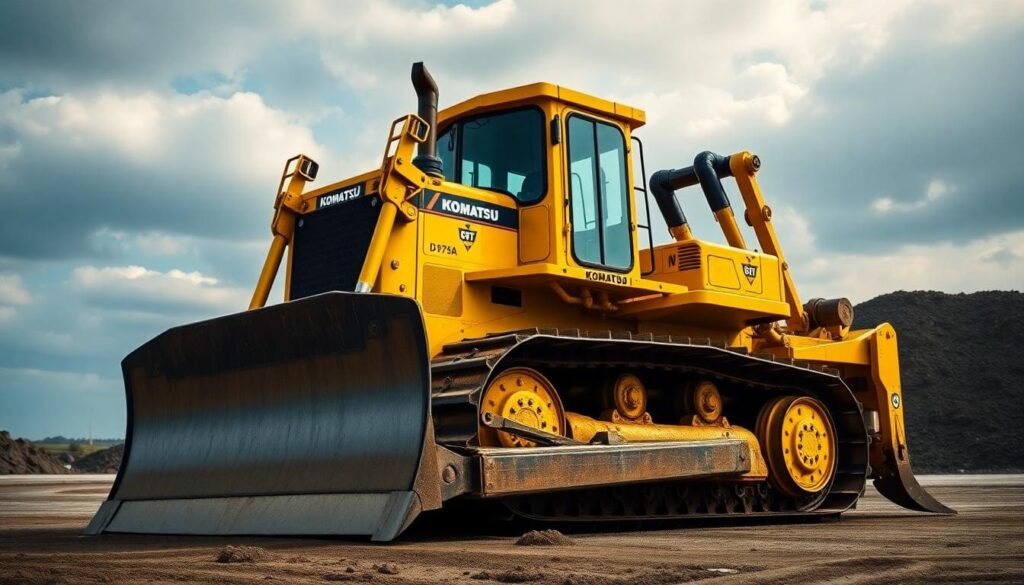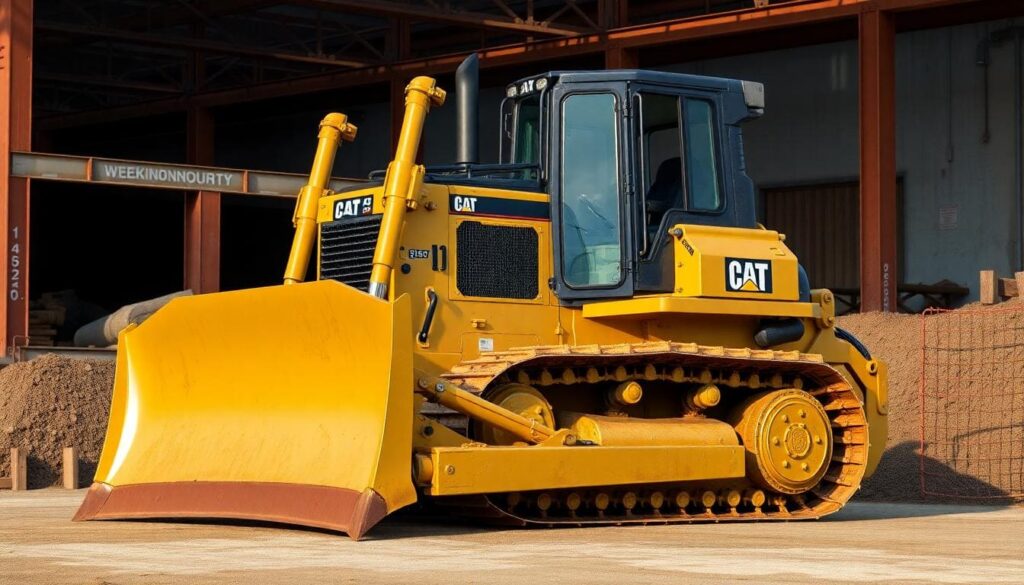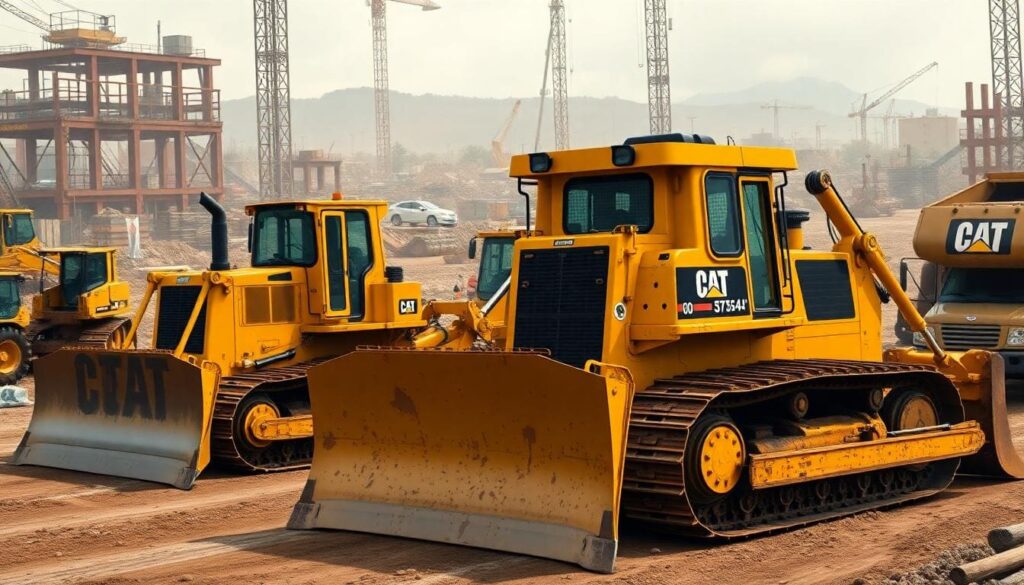When it comes to heavy-duty dozers, the Komatsu D575A and Caterpillar D11 sit at the pinnacle of performance and engineering. These machines are designed to excel in large-scale earthmoving or mining operations, but each has unique strengths tailored to different tasks. This guide provides a clear, fact-based comparison to help readers better understand their capabilities and make informed decisions.
Komatsu D575A: Power and Performance
Dimensions and Weight
The Komatsu D575A is among the largest bulldozers ever built. Standing roughly 16 feet tall and weighing approximately 300,000 pounds, its size and stability make it ideal for heavy earthmoving tasks.
Blade Capacity and Engine Power
Engineered for efficiency, the Komatsu D575A features a powerful 1,150-horsepower engine that allows it to push up to 90 cubic yards of material per pass with its standard blade. This makes it a top choice for large-scale mining and construction projects, where moving massive quantities of material is essential.
Advanced Features
Beyond its size and power, the Komatsu D575A incorporates technologies like advanced hydraulics and a durable powertrain. These features enhance reliability and reduce downtime, ensuring consistent performance during demanding operational schedules.

Caterpillar D11: Precision and Durability
Construction and Weight
The Caterpillar D11 is another heavyweight contender, weighing approximately 230,000 pounds. Its rugged construction enables durability and adaptability, particularly in harsh conditions like rocky terrains and challenging job sites.
Blade Versatility and Engine Strength
The D11’s robust blade can handle heavy material loads while delivering precision and efficiency. With a powerful engine generating around 850 horsepower, it excels in tasks requiring adaptability, precision, and control, making it a trusted choice in mining and infrastructure projects.
Innovations in Technology
The Caterpillar D11 integrates intelligent features, including advanced control systems and ergonomic designs. These systems optimize fuel use and provide operators with improved control, enhancing productivity while reducing fatigue.

Key Feature Comparison
To highlight the differences effectively, here’s a side-by-side breakdown:
| Feature | Komatsu D575A | Caterpillar D11 |
| Operating Weight | ~300,000 lbs | ~230,000 lbs |
| Horsepower | 1,150 HP | ~850 HP |
| Blade Capacity | 90 cubic yards | Adaptable, precise but unspecified |
| Intended Use | Large-scale projects (mining, earthmoving) | Versatile operations requiring high precision |
| Technology | Advanced hydraulics, strong powertrain | Intelligent fuel controls, ergonomic design |
Conclusion: The Komatsu D575A prioritizes power and capacity for maximum output, while the Caterpillar D11 focuses on durability, operator comfort, and flexibility.
Frequently Asked Questions
1. Which machine offers better fuel efficiency?
Fuel efficiency depends on operating conditions. The Caterpillar D11’s advanced fuel optimization systems may provide better efficiency in certain scenarios.
2. How does operating weight impact performance?
Heavier machines like the Komatsu D575A offer more stability for large-scale tasks, while a lighter design, like the D11, often allows for greater precision and agility.
3. Can they handle extreme environments?
Both dozers are engineered to operate in demanding conditions, but their suitability depends on the specific environment. The D11 excels in rocky terrains, while the D575A shines in bulk material movement.
Final Note
The Komatsu D575A and Caterpillar D11 are exceptional examples of engineering excellence in the heavy machinery world. Their differing capabilities cater to distinct needs—power and capacity for the D575A, and precision and durability for the D11.
When choosing between these machines, assess your project’s requirements carefully. Consulting with professionals and reviewing technical specifications is crucial for selecting the right equipment for your needs.
Well-maintained equipment also plays a significant role in long-term performance. Regular servicing, including using high-quality lubricants, ensures these machines continue to perform at their best.
